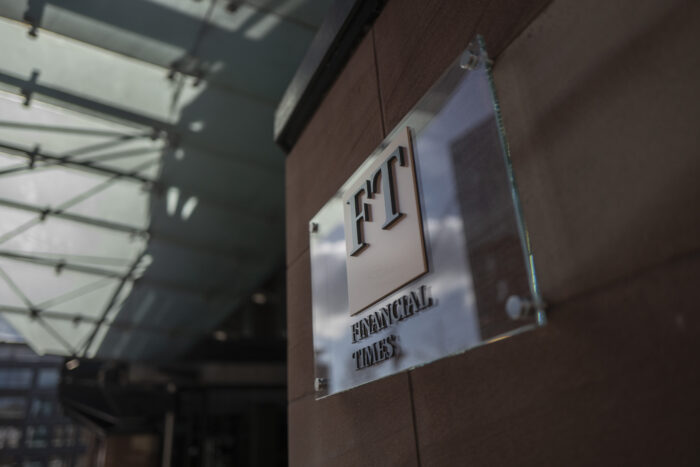
The Financial Times is the latest major news publisher to sign a content licensing deal with OpenAI, the developer of ChatGPT.
The new deal will allow ChatGPT to pull information in real time from the FT’s published stories when answering user prompts. Details taken from those stories will appear in ChatGPT as a summary or quote, with a link to the specific article being cited.
Kayla Wood, a spokesperson for OpenAI, confirmed the deal also gives the company access to the FT’s archive, including content behind the publication’s standard and premium paywalls. Under the terms of the deal, this archive can be used to train ChatGPT’s underlying models.
The new deal only applies to the FT, and won’t extend to other brands owned by Nikkei, the publication’s Japanese parent company.
“As with any transformative technology, there is potential for significant advancements and major challenges, but what’s never possible is turning back time,” said John Ridding, the FT Group’s CEO, in a statement. “We value the opportunity to be inside the development loop as people discover content in new ways.”The announcement mentions citations of the FT will appear as “rich links” in ChatGPT. Both the FT and OpenAI declined to share specifics on how these “rich links” will display, but the phrase indicates users will be able to easily click through to an original FT.com article.
ChatGPT has already been experimenting with new ways to cite its sources. Last month, the company rolled out a feature that inserts the hyperlinked names of websites used when ChatGPT browses the internet to draft a response. The feature is currently only available for ChatGPT’s enterprise and premium subscribers.
With this deal, the FT joins a growing list of newsrooms that have inked content licensing agreements with OpenAI over the past year.
In 2023, OpenAI signed deals with The Associated Press and Axel Springer SE, the German publisher that owns Business Insider and Politico. Last month, OpenAI announced similar deals with the French newspaper Le Monde and the Spanish media conglomerate Prisa Media, which own El País and El Huffpost.
In December, Bloomberg reported Axel Springer’s contract with OpenAI would last three years and net the company tens of millions of euros. OpenAI and the FT declined to answer questions about the terms of their deal.
The partnerships represent a marked difference from the approach towards OpenAI from newsrooms like The New York Times, and smaller digital publishers such as The Intercept, which have both filed lawsuits against OpenAI alleging copyright violations. In March, during a conversation with my colleague Sarah Scire, Ridding argued that that the relationship between publishers and generative AI developers can be symbiotic, under the right conditions.“If [generative AI] develops in the way it looks as though AI developers want it to develop…then they’re going to undermine the news content on which their models are trained,” Ridding said at the time, gesturing to an alternative path that includes direct compensation for news publishers and citations of their work. “There’s a mutual interest in the verification and validation of gen AI content against trusted sources.”